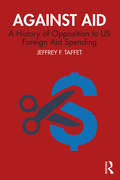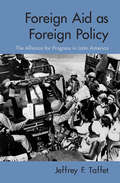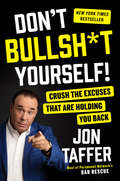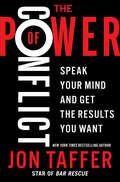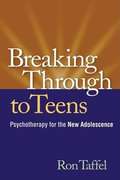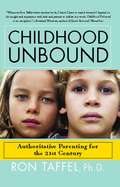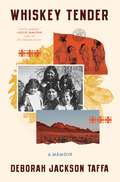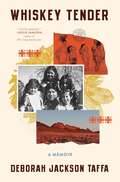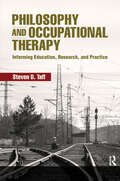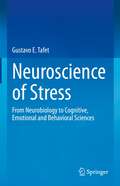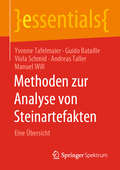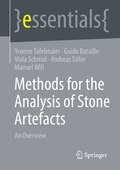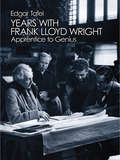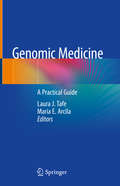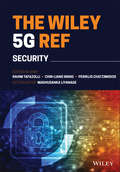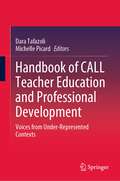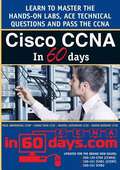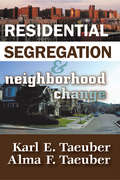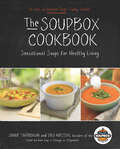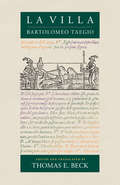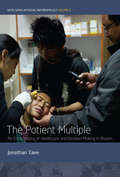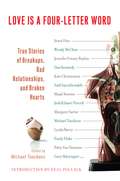- Table View
- List View
Against Aid: A History of Opposition to US Foreign Aid Spending
by Jeffrey F. TaffetAgainst Aid presents a complex and diverse history of opposition to US foreign aid spending, explaining why critics challenged aid and how they had a significant impact on US foreign policy. Foreign aid was an integral part of US foreign policy during the Cold War. US leaders hoped aid spending could modernize other societies, create steadfast allies, and promote global stability, but there was always considerable opposition. Jeffrey F. Taffet skillfully examines aid’s opponents and shows how they questioned the assumptions that the United States needed to be globally engaged. He argues that aid’s opponents forced changes in US aid programs that dramatically reduced overall spending and limited support for dictatorships. Taffet also makes a larger argument, that in fighting aid, opponents were challenging essential views about the nation and its global role that transcended debates about how much to spend. They were arguing about the appropriate use of national power and the essence of the nation’s purpose. This book is essential reading for courses in American politics, international studies, and history of American foreign policy. Students will benefit from the broad, chronological scope and accessible narrative of the text.
Foreign Aid as Foreign Policy: The Alliance for Progress in Latin America
by Jeffrey TaffetForeign Aid as Foreign Policy presents a wide-ranging, thoughtful analysis of the most significant economic-aid program of the 1960s, John F. Kennedy’s Alliance for Progress. Introduced in 1961, the program was a ten-year, multi-billion-dollar foreign-aid commitment to Latin American nations, meant to help promote economic growth and political reform, with the long-term goal of countering Communism in the region. Considering the Alliance for Progress in Chile, Brazil, the Dominican Republic, and Colombia, Jeffrey F. Taffet deftly examines the program’s successes and failures, providing an in-depth discussion of economic aid and foreign policy, showing how policies set in the 1960s are still affecting how the U.S. conducts foreign policy today. This study adds an important chapter to the history of US-Latin American Relations.
Don't Bullsh*t Yourself!: Crush The Excuses That Are Holding You Back
by Jon TafferBar Rescue's Jon Taffer presents a new guide to getting what you want in life and business--to stop making excuses so you can get back to winning.During his many years as an entrepreneur, consultant, and star of the Paramount Network's hit show Bar Rescue, Jon Taffer has witnessed the destruction that results when people bullsh*t themselves. Excuses are the root cause of nearly every business and personal problem, but fortunately, Jon knows how to fix your excuse habit for good.This book is almost as good as having Jon in your face on Bar Rescue, telling you the hard truths you've been avoiding. Don't Bullsh*t Yourself! is Jon Taffer's brutally honest, no-nonsense guide to help you kick those excuses to the curb. If you can stop bullsh*tting yourself and address your real issues, you will gain the power to turn your life around completely.Taffer breaks excuses down into six major categories, illustrating them with real-life examples such as Marcus Luttrell, the lone survivor of a SEAL team mission in Afghanistan who barely escaped Taliban territory, and Christine King, founder and CEO of Your Best Fit, who, despite being paralyzed in a horrific boating accident, went on to build a successful fitness company. These inspiring stories, combined with Taffer's own experiences, will give you the confidence to identify and face your own excuses head-on. It's Taffer Time! Time to stop bullsh*tting yourself and start crushing it!
The Power of Conflict
by Jon TafferStar and executive producer of the hit TV show Bar Rescue and New York Times bestselling author of Don't Bullsh*t Yourself, Jon Taffer reveals the transformational power of conflict, sharing his toolkit for arguing smarter—at home, at work, and in life.Most people try their best to avoid conflict. Bar Rescue host Jon Taffer understands that. Conflict can have negative results. It’s easy to think that the key to a happy workplace or marriage is to avoid conflict. In reality, that’s not the case—the key is to argue smarter.Enter the Toolkit for Getting Conflict Right. Taffer’s approach is focused on deliberate conflict—otherwise known as “conflict with a purpose.” There are selective and strategic ways to have difficult conversations, and when doing so, to stay aware of your objectives rather than escalating tension unnecessarily. As Taffer explains, “The key is to act affirmatively, constructively, and productively.” Eliminating conflict isn’t always the answer; inevitably there will be times when it will arise. Engaging in conflict can be a way to clear the air, and get to the bottom of issues that, once resolved, can strengthen friendships, ease tensions at work, and address problems before they have a chance to bubble over.With easy-to-follow advice that shows how to best engage in constructive discourse to get the results you want, The Power of Conflict provides you with the rules to argue smarter, uphold your values, and keep the conversation real. The step-by-step guide starts with the inception of the conflict and carries through the difficult conversation’s conclusion, arming readers with the skills and confidence to fight for their principles.
Breaking Through to Teens
by Ron TaffelThis book presents groundbreaking strategies for psychotherapy with today's teens, for whom high-risk behavior, lack of adult guidance, and intense anxiety and stress increasingly come with the territory. Ron Taffel addresses the key challenge of building a therapeutic relationship that is strong enough to promote real behavioral and emotional change. He demonstrates effective ways to give advice that teens will listen to, get them to tell the truth about their lives, help parents reestablish their authority, and extend the reach of therapy by such nontraditional means as inviting teens to bring friends into sessions.
Childhood Unbound
by Ron TaffelDr. Ron Taffel, one of the country's most sought-after child-rearing experts, draws on decades of counseling experience and extensive conversations with parents nationwide to offer an original and inspiring analysis of the distinctive challenges parents face in raising children today. He also introduces a breakthrough approach for guiding kids -- from children to teens -- in ways that bring out the best in both kids and parents in these twenty-first-century times. With warmth and clarity, Taffel, who is himself a parent struggling with these issues, helps us to understand our sons and daughters in an entirely new way: as a distinctive "free-est" generation, born to the first generation of "post-baby boomer" parents and the products of a decades-long cultural sea change that intensified in the nineties. As a result, kids of all ages are now a bundle of contradictions: they exude entitlement, back talk shockingly, negotiate endlessly, worship celebrity, do ten things at once, conduct independent lives online, and engage in high-risk behavior at younger ages. Yet, they are also far more open with their parents and each other than kids in prior generations, are strikingly generous and empathetic, and care deeply about ethical issues. In addition, their high-speed multitasking is preparing them for the demands of the future. The key question, then, is how to encourage the good while steering them away from the bad. Taffel believes today's parents, having lived through the beginning phases of the same social changes, are uniquely qualifiedto bring out kids' best -- and he shows you how. Using a wealth of examples, he walks parents through innovative methods to get children's and teens' attention, to set limits they will respect, and to engage them in meaningful conversation to provide the guidance they need. He also instructs on how to rebuild supportive community around us. His inspiring analysis and expert guidance will be embraced as the authoritative new approach to raising their kids that parents have been searching for.
Whiskey Tender: A Memoir
by Deborah TaffaA Zibby Mag "Most Anticipated Book" * A San Francisco Chronicle "New Book to Cozy Up With" * A Publishers Weekly "Memoirs & Biographies: Top 10" * The Millions "Most Anticipated" * An Electric Lit “Books By Women of Color to Read"“We have more Native stories now, but we have not heard one like this. Whiskey Tender is unexpected and propulsive, indeed tender, but also bold, and beautifully told, like a drink you didn’t know you were thirsty for. This book, never anything less than mesmerizing, is full of family stories and vital Native history. It pulses and it aches, and it lifts, consistently. It threads together so much truth by the time we are done, what has been woven together equals a kind of completeness from brokenness, and a hope from knowing love and loss and love again by naming it so.” — Tommy Orange, National Bestselling Author of There There Reminiscent of the works of Mary Karr and Terese Marie Mailhot, a memoir of family and survival, coming-of-age on and off the reservation, and of the frictions between mainstream American culture and Native inheritance; assimilation and reverence for tradition.Deborah Jackson Taffa was raised to believe that some sacrifices were necessary to achieve a better life. Her grandparents—citizens of the Quechan Nation and Laguna Pueblo tribe—were sent to Indian boarding schools run by white missionaries, while her parents were encouraged to take part in governmental job training off the reservation. Assimilation meant relocation, but as Taffa matured into adulthood, she began to question the promise handed down by her elders and by American society: that if she gave up her culture, her land, and her traditions, she would not only be accepted, but would be able to achieve the “American Dream.”Whiskey Tender traces how a mixed tribe native girl—born on the California Yuma reservation and raised in Navajo territory in New Mexico—comes to her own interpretation of identity, despite her parent’s desires for her to transcend the class and “Indian” status of her birth through education, and despite the Quechan tribe’s particular traditions and beliefs regarding oral and recorded histories. Taffa’s childhood memories unspool into meditations on tribal identity, the rampant criminalization of Native men, governmental assimilation policies, the Red Power movement, and the negotiation between belonging and resisting systemic oppression. Pan-Indian, as well as specific tribal histories and myths, blend with stories of a 1970s and 1980s childhood spent on and off the reservation.Taffa offers a sharp and thought-provoking historical analysis laced with humor and heart. As she reflects on her past and present—the promise of assimilation and the many betrayals her family has suffered, both personal and historical; trauma passed down through generations—she reminds us of how the cultural narratives of her ancestors have been excluded from the central mythologies and structures of the “melting pot” of America, revealing all that is sacrificed for the promise of acceptance.
Whiskey Tender: A Memoir
by Deborah TaffaA Zibby Mag "Most Anticipated Book" * A San Francisco Chronicle "New Book to Cozy Up With" * A Publishers Weekly "Memoirs & Biographies: Top 10" * The Millions "Most Anticipated" * An Electric Lit “Books By Women of Color to Read" “We have more Native stories now, but we have not heard one like this. Whiskey Tender is unexpected and propulsive, indeed tender, but also bold, and beautifully told, like a drink you didn’t know you were thirsty for. This book, never anything less than mesmerizing, is full of family stories and vital Native history. It pulses and it aches, and it lifts, consistently. It threads together so much truth by the time we are done, what has been woven together equals a kind of completeness from brokenness, and a hope from knowing love and loss and love again by naming it so.” — Tommy Orange, National Bestselling Author of There There Reminiscent of the works of Mary Karr and Terese Marie Mailhot, a memoir of family and survival, coming-of-age on and off the reservation, and of the frictions between mainstream American culture and Native inheritance; assimilation and reverence for tradition. Deborah Jackson Taffa was raised to believe that some sacrifices were necessary to achieve a better life. Her grandparents—citizens of the Quechan Nation and Laguna Pueblo tribe—were sent to Indian boarding schools run by white missionaries, while her parents were encouraged to take part in governmental job training off the reservation. Assimilation meant relocation, but as Taffa matured into adulthood, she began to question the promise handed down by her elders and by American society: that if she gave up her culture, her land, and her traditions, she would not only be accepted, but would be able to achieve the “American Dream.” Whiskey Tender traces how a mixed tribe native girl—born on the California Yuma reservation and raised in Navajo territory in New Mexico—comes to her own interpretation of identity, despite her parent’s desires for her to transcend the class and “Indian” status of her birth through education, and despite the Quechan tribe’s particular traditions and beliefs regarding oral and recorded histories. Taffa’s childhood memories unspool into meditations on tribal identity, the rampant criminalization of Native men, governmental assimilation policies, the Red Power movement, and the negotiation between belonging and resisting systemic oppression. Pan-Indian, as well as specific tribal histories and myths, blend with stories of a 1970s and 1980s childhood spent on and off the reservation. Taffa offers a sharp and thought-provoking historical analysis laced with humor and heart. As she reflects on her past and present—the promise of assimilation and the many betrayals her family has suffered, both personal and historical; trauma passed down through generations—she reminds us of how the cultural narratives of her ancestors have been excluded from the central mythologies and structures of the “melting pot” of America, revealing all that is sacrificed for the promise of acceptance.
Philosophy and Occupational Therapy: Informing Education, Research, and Practice
by Steven TaffPhilosophy and Occupational Therapy: Informing Education, Research, and Practice provides an overview of the most influential philosophical movements from past to present and shows how these philosophies are a foundational, yet underutilized, element of occupational therapy education, research, and practice. Editor Steven D. Taff, PhD, OTR/L, FNAP, FAOTA, fills a gap in existing occupational therapy literature by exploring the major thinkers and concepts of numerous different philosophical movements and examining their implications. Taff and a multitude of chapter authors demonstrate that the vital points of human existence are found in philosophy as well as science, and that occupational therapy should incorporate a clearly articulated philosophical perspective into its evidence-based and measurement-driven paradigm. Each chapter offers a basic description of a philosophy, outlines major thinkers and concepts and ultimately summarizes the implications for occupational therapy education, research and practice. Philosophy and Occupational Therapy: Informing Education, Research, and Practice is a unique and essential book for occupational therapy educators, researchers, and clinicians that will enrich the teaching-learning process, ground research with depth and clarity, and spark discussion among professionals about reviving the use of philosophy in current occupational therapy practice.
Neuroscience of Stress: From Neurobiology to Cognitive, Emotional and Behavioral Sciences
by Gustavo E. TafetThis textbook provides an introduction to the interdisciplinary study of stress, helping students and professionals understand the main neurobiological and psychological causes and consequences of stress in human beings. It’s aimed at understanding the concept of stress at different levels, from the impact of environmental stressors to its processing in the brain, and from the neural mechanisms involved in this processing to the expression of different adaptive responses. All these neural mechanisms are clearly explained according to different levels of complexity, from the neurobiological level, including the cellular and molecular mechanisms, to the psychological level, including the cognitive and emotional processing, and behavioral expressions.The whole content is described in a very comprehensive manner, accompanied with descriptive graphics to clearly illustrate every detail, therefore allowing a full integration of all the covered concepts. In addition, clinical expressions of stress, such as mood and anxiety disorders, are also covered in detail, including an overview of different factors of vulnerability and resilience, therefore providing a unique and fundamental insight of this interdisciplinary field. Given its interdisciplinary approach, Neuroscience of Stress: From Neurobiology to Cognitive, Emotional and Behavioral Sciences will provide a comprehensive and clear introduction to the study of stress to students and professionals from different fields of the behavioral and health sciences. It will serve as a valuable text for adoption in classes of a wide range of graduate courses dealing with mental health and well-being, in areas such as health and clinical psychology, health promotion and disease prevention, psychiatry and behavioral medicine, among others.
Methoden zur Analyse von Steinartefakten: Eine Übersicht (essentials)
by Yvonne Tafelmaier Guido Bataille Viola Schmid Andreas Taller Manuel WillDieses essential gibt einen Überblick über aktuelle Analysemethoden von Gesteinsartefakten von der Attributanalyse ganzer Inventare bis hin zu mikroskopischen Gebrauchsspurenanalysen einzelner Artefakte. Dabei zeigen die vorgestellten Ansätze die Bandbreite der Analyse urgeschichtlicher Steinartefakte im deutschsprachigen Raum. Einfache Anwendungsbeispiele veranschaulichen die Möglichkeiten und Einschränkungen der jeweiligen Methode. Der Inhalt und die Struktur des essentials ist identisch mit Unterrichtseinheiten zur Erlernung von Methoden der Steinartefaktanalyse an der Universität Tübingen im Fachbereich Ältere Urgeschichte.
Methods for the Analysis of Stone Artefacts: An Overview (essentials)
by Yvonne Tafelmaier Guido Bataille Viola Schmid Andreas Taller Manuel WillThis essential gives an overview of current methods of analysis of stone artefacts ranging from attribute analysis of entire inventories to microscopic analyses of traces of use of individual artefacts. The presented approaches show the range of analysis of prehistoric stone artefacts in the German-speaking area. Simple examples of application illustrate the possibilities and limitations of each method. The content and structure of the essentials is identical to teaching units for learning methods of stone artefact analysis at the University of Tübingen in the Department of Early Prehistory.
Years with Frank Lloyd Wright: Apprentice to Genius (Dover Architecture Ser.)
by Edgar TafelInsightful memoir by former apprentice presents a revealing portrait of Wright the man, the inspired teacher, the architect.
Genomic Medicine: A Practical Guide
by Laura J. Tafe Maria E. ArcilaThe field of Molecular Diagnostics is rapidly evolving and molecular characterization of neoplasms is becoming an increasingly important part of the pathologic work up and diagnosis of many tumor types. This work provides a high-yield reference book that compiles critical information related to molecular biomarkers for various solid tumor and hematologic malignancy subtypes. It is succinct yet comprehensive enough to be suitable for fellows in training and medical professionals with an interest in molecular pathology and biomarkers. The book covers many aspects of molecular diagnostics, from techniques to applications and comprehensive summaries of the current molecular biomarkers of critical importance in solid and liquid tumors. Attention is also specifi cally devoted to bioinformatics and next generation sequencing, as well as pre-analytical issues that must be considered for accurate interpretation of molecular results in the context of overall patient care.This text focuses on clinical utility and validity and serves as an “owner’s manual” in Genomic Diagnostics for the practicing pathologist, pathology fellows and residents and other health care providers. Physicians will find this book invaluable as a quick reference for current molecular testing modalities and guidelines, tumor board preparation, deciding which test to order and interpreting genomic laboratory results. In addition, it is an accessible for trainees as a board review preparation reference.
The Wiley 5G REF: Security
by Rahim Tafazolli Chin-Liang Wang Periklis Chatzimisios Madhusanka LiyanageFrom the Section Editor’s Foreword by Dr. Madhusanka Liyanage, University College Dublin, Ireland. The Wiley 5G Ref: Security offers a stellar collection of articles selected from the online-only Work, The Wiley 5G Reference. It aims to provide a solid educational foundation for researchers and practitioners in the field of 5G Security and Privacy to expand their knowledge base by including the latest developments in these disciplines. The book introduces the security landscape of 5G, and significant security and privacy risks associated with the 5G networks. Then, the security solutions for different segments of the 5G network, i.e., radio network, edge network, access network, and core network, are discussed. Since 5G is developed based on network softwarization, security threats associated with key network softwarization technologies such as SDN, NFV, NS, and MEC are also presented in detail. Then, the security issues related to the new 5G and IoT services are delivered. Finally, a detailed discussion on the privacy of 5G networks is presented by considering Datafied Society. Written by leading experts in security and privacy for the telecommunication network, this book is intended to provide additional learning opportunities for a wide range of readers, from graduate-level students to seasoned engineering professionals. We are confident that this book and the entire collection of selected articles will continue Wiley’s tradition of excellence in technical publishing and provide a lasting and positive contribution to the teaching and practice of security and privacy of 5G and beyond networks.
Handbook of CALL Teacher Education and Professional Development: Voices from Under-Represented Contexts
by Dara Tafazoli Michelle PicardThis comprehensive handbook provides an overview of current trends in computer-assisted language learning (CALL) teacher education and professional development across the globe. It highlights theories and practices in CALL teacher education and professional development in five sections, such as English language teaching, including pre-service teachers, in-service teachers, teacher educators, material developers, course designers and researchers. It explores the role of CALL teacher education and professional development in many underexplored countries such as Africa, Asia, Eastern Europe and the Middle East. It stresses the critical role of professional development programs, from the use of technology in its generic sense. The theoretical and empirical chapters in the book provide a more inclusive and comprehensive picture of various aspects of CALL teacher education and professional development globally. It offers context-specific approaches and strategies to language teachers and teacher educators. It provides pedagogical implications and suggestions for promoting digital literacy and autonomy in online education. This book provides valuable insights for researchers, teacher educators and teacher trainers in applied linguistics.
Subjectivity in the Twenty-First Century
by Romin W. TafarodiWhat is it like to be a person today? To think, feel, and act as an individual in a time of accelerated social, cultural, technological, and political change? This question is inspired by the double meaning of subjectivity as both the 'first-personness' of consciousness (being a subject of experience) and the conditioning of that consciousness within society (being subject to power, authority, or influence). The contributors to this volume explore the perils and promise of the self in today's world. Their shared aim is to describe where we stand and what is at stake as we move ahead in the twenty-first century. They do so by interrogating the historical moment as a predicament of the subject. Their shared focus is on subjectivity as a dialectic of self and other, or individual and society, and how the defining tensions of subjectivity are reflected in contemporary forms of individualism, identity, autonomy, social connection, and political consciousness.
Cisco CCNA in 60 Days: Study Guide
by Farai Tafa Dario Barinic Paul Browning Daniel GheorgheThe Cisco CCNA is one of the most widely recognised and respected qualifications in the IT industry. Every year, tens of thousands of people embark towards taking the exam via private study, Cisco Academy courses, or online training. The sad truth is most students quit along the way, and for those few who actually do attempt it, only 50% pass. All that time, effort, and money wasted If there are so many manuals, CBT courses, lab simulators, exam engines, and study resources out there, then what goes wrong? This is the question Cisco trainer Paul Browning wanted to get to the bottom of. After interviewing thousands of students, he discovered that most people quit because they are simply overwhelmed with the sheer volume of material they need to digest and, of course, the large number of hands-on skills they need to be able to demonstrate in the exam. Add to that the day-to-day stresses of commuting to work, bringing up a family, and the distraction of everyday problems and challenges; it's no wonder people quit. This is where Cisco CCNA in 60 Days can help. Devised by two industry experts and countless Cisco students just like you, the 60-day programme breaks down every exam requirement into a daily study task. All you need to do is open the book at the relevant day (from 1 to 60), read the theory, and complete the lab. Every lesson is reviewed several times in the form of exam questions, review sessions, a handy exam cram guide, and, of course, hands-on labs for you to follow. You can choose to take the CCENT after the first 30 days and the ICND2 after the next 30 days, or you can take the CCNA after 60 days of study.
Residential Segregation and Neighborhood Change
by Karl E. Taeuber Alma F. TaeuberThis book is an invaluable reference. First published in 1965, it is at once a snapshot of a moment in history and a timeless conceptualization of the issues inherent in societal segregation.Residential segregation historically occupies a key position in patterns of race relations in the urban United States. It not only inhibits the development of informal, neighborly relations between white people and African Americans, but ensures the segregation of a variety of public and private facilities. The clientele of schools, hospitals, libraries, parks, and stores is determined in large part by the racial composition of the neighborhood in which they are located. Problems created by residential segregation are the focus of this of this work.African Americans in cities resemble whites in cities. Both racial groups are highly urbanized, and most of the immigrants of either race to a city are former residents of another city. Within cities, racial groups display similar patterns of residential behavior, with those of higher incomes seeking out newer and better housing. Both races respond similarly to national, social, and economic factors which set the context within which local changes occur. Karl E. and Alma F. Taeuber's main approach to the analysis of residential segregation and processes of neighborhood change is comparative and statistical. By quantitative comparison of the situation in many different cities, they attempt to assess those patterns and processes which are common to all communities and those which vary.Residential segregation is shown to be a prominent and enduring feature of American urban society. By bringing empirical data to bear on an important and timely social problem, this book will aid in the search for reasonable solutions. All types of cities, southern and northern, large and small, are beset with the difficulties that residential segregation imposes on harmonious race relations and on the solution of pressing city prob
The Soupbox Cookbook: Sensational Soups for Healthy Living
by Jamie Taerbaum Dru MeltonWholesome, healthy soup recipes from the founders of a beloved Chicago eatery—most requiring as little as fifteen minutes to prepare!From the chef and founders of the Soupbox restaurant—which was voted the Best Soup in Chicago on Citysearch and featured on Rachael Ray’s Tasty Travels—this cookbook features both creative and traditional soups, stews, and chowders from old favorites to great new recipes to try. All the 125 soups included are wholesome and nourishing for the whole family, and most of them take as little as fifteen minutes of prep time. Try the Rosemary Chicken Dumpling Soup for a new twist on a traditional favorite, or the Magnificent Mushroom and Barley Soup, light and healthy yet satisfying and packed with Vitamin B. You’ll also find Latin and Asian flavors, adapted to become new family favorites including the Spicy Mayan Chicken Enchilada Fiesta. The book features multiple vegan, gluten-free, and low-sodium options, too—for happy eating with health in mind.
Sheaves and functions modulo p: lectures on the Woods Hole trace formula
by Lenny TaelmanThe Woods Hole trace formula is a Lefschetz fixed-point theorem for coherent cohomology on algebraic varieties. It leads to a version of the sheaves-functions dictionary of Deligne, relating characteristic-p-valued functions on the rational points of varieties over finite fields to coherent modules equipped with a Frobenius structure. This book begins with a short introduction to the homological theory of crystals of Böckle and Pink with the aim of introducing the sheaves-functions dictionary as quickly as possible, illustrated with elementary examples and classical applications. Subsequently, the theory and results are expanded to include infinite coefficients, L-functions, and applications to special values of Goss L-functions and zeta functions. Based on lectures given at the Morningside Center in Beijing in 2013, this book serves as both an introduction to the Woods Hole trace formula and the sheaves-functions dictionary, and to some advanced applications on characteristic p zeta values.
One Korea: Visions of Korean unification (Rethinking Asia and International Relations)
by Tae-Hwan Kwak and Seung-Ho JooOn the Korean peninsula, there exist two sovereign states—the Republic of Korea (ROK or South Korea) and the Democratic People’s Republic of Korea (DPRK or North Korea)—both of whom hold separate membership at the United Nations. This book discusses the construction of "one Korea" and highlights the potential benefits of unification for the Koreans and the international community. Arguing that Korean unification is intrinsically international in nature, the authors outline how the process and outcome would impact upon the policies of the four major powers—the U.S., China, Russia, and Japan. In addition, the authors highlight the possible far-reaching repercussions of unification on the political and economic dynamics of Northeast Asia. Making a case for the two Koreas and interested powers to plan and orchestrate their acts for sustained peace and gradual unification on the Korean peninsula, this book examines the Korean question and the related issue of peace building in Northeast Asia from a global perspective. It will be of interest to students and scholars researching politics and international relations.
La Villa: Dialogo (classic Reprint) (Penn Studies in Landscape Architecture)
by Bartolomeo TaegioPublished in 1559 and appearing here for the first time in English, La Villa is a rare source of Renaissance landscape theory. Written by Bartolomeo Taegio, a Milanese jurist and man of letters, after his banishment (possibly for murder, Thomas E. Beck speculates), the text takes the form of a dialogue between two gentlemen, one a proponent of the country, the other of the city. While it is not a gardening treatise, La Villa reflects an aesthetic appreciation of the land in the Renaissance, reveals the symbolic and metaphorical significance of sixteenth-century gardens for their owners, and articulates a specific philosophy about the interaction of nature and culture in the garden.This edition of the original Italian text and Beck's English translation is augmented with notes in which Beck identifies numerous references to literary sources in La Villa and more than 280 people and places mentioned in the dialogue. The introduction illuminates Taegio's life and intellectual activity, his obligations to his sources, the cultural context, and the place of La Villa in Renaissance villa literature. It also demonstrates the enduring relevance of La Villa for architecture and landscape architecture. La Villa makes a valuable contribution to the body of literature about place-making, precisely because it treats the villa as an idea and not as a building type.
The Patient Multiple: An Ethnography of Healthcare and Decision-Making in Bhutan
by Jonathan TaeeIn the Himalayan Kingdom of Bhutan, medical patients engage a variety of healing practices to seek cures for their ailments. Patients use the expanding biomedical network and a growing number of traditional healthcare units, while also seeking alternative practices, such as shamanism and other religious healing, or even more provocative practices. The Patient Multiple delves into this healthcare complexity in the context of patients' daily lives and decision-making processes, showing how these unique mountain cultures are finding new paths to good health among a changing and multifaceted medical topography.
Love Is a Four-Letter Word
by Michael Taeckens Neal PollackFrom Junot Díaz, Lynda Barry, Gary Shteyngart, and Kate Christensen to popular up-and-comers like Dan Kennedy, Wendy McClure, and Brock Clarke, Love Is a Four-Letter Word is a dead-on contemporary collection of true stories of seduction, heartbreak, and regret. Fearlessly revealing their shattered hearts and crushed egos; their indiscretions and indignities; their delusions, desperation, and disappointments, these talented writers capture the dark side of love in prose ranging from comic to poetic, poignant to cringe-inducing. Also featuring three cartoon/ graphic essays as a sixteen-page color insert, this anthology is perfect for anyone who's ever loved and lost.
